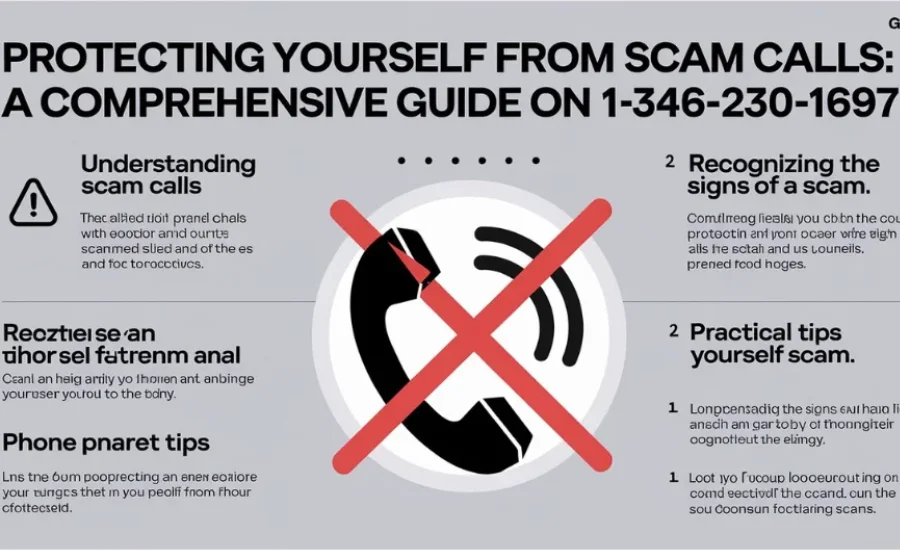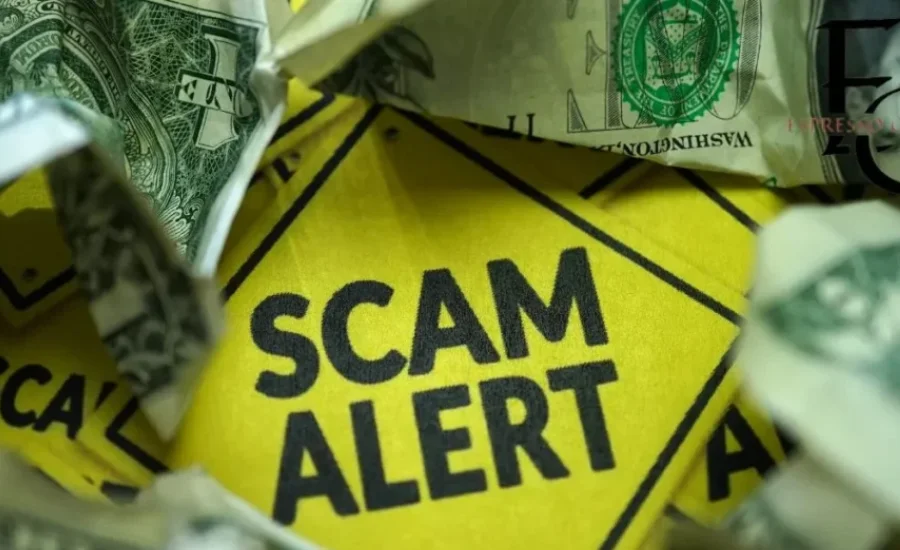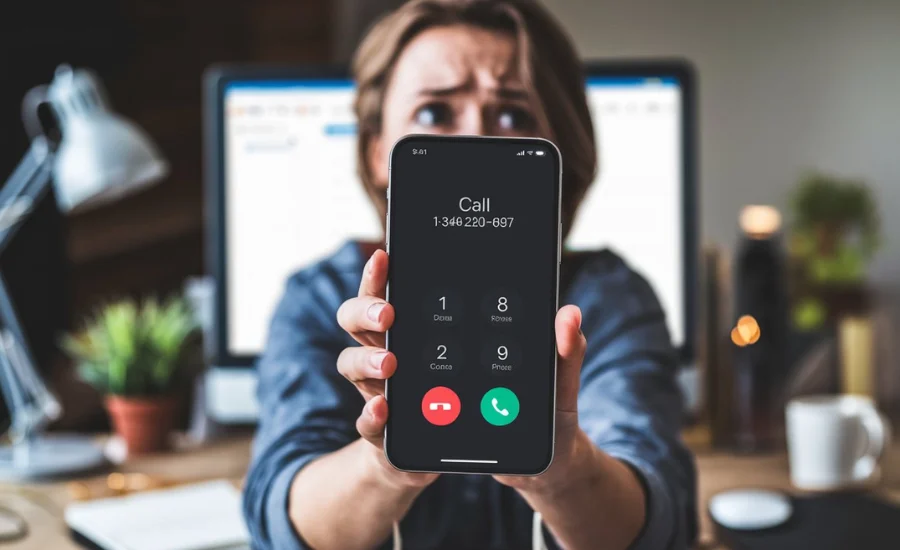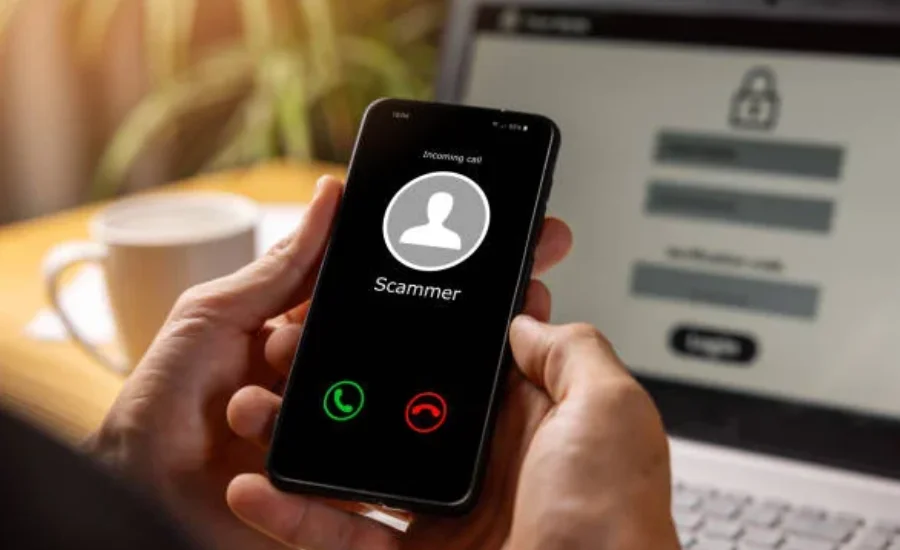The increase in fraudulent calls in the current digital era puts a lot of people at danger of financial loss and identity theft. You may have noticed a suspicious number, 1-346-230-1697, that has lately shown up on your phone. To protect yourself from these fraudulent calls and safeguard your personal data, this article offers crucial insights and doable actions.
Understanding the typical strategies fraudsters employ is one of the most crucial steps you can do to protect yourself. In order to coerce people into disclosing personal information, they frequently instill a feeling of urgency or offer surprising benefits. Immediately hang up and follow your gut if a call seems questionable.
Understanding and Protecting Yourself from Scam Calls
Scam calls, which aim to trick people into disclosing private information or carrying out unlawful financial transactions, are an increasing worry in today’s digital environment. 1-346-230-1697 is one number in particular that has been linked to these frauds. Scammers frequently pose as authorized representatives of businesses, governmental organizations, or tech support in order to deceive their victims.

Is 1-346-230-1697 a Scam Number?
There is a suspicion that the phone number 1-346-230-1697 is connected to fraudulent activity. It is imperative to proceed with caution, even while there is a possibility it may be utilized for justifiable purposes. In order to hide their genuine identities and increase their success rates, scammers routinely change caller ID and rotate numbers. 1-346-230-1697 may be connected to frauds for the following reasons:
- Impersonation: Scammers often pretend to be from reputable businesses or official agencies. If you get a call from 1-346-230-1697 claiming to be from a trusted institution, verify it independently.
- Urgent Requests: Many scam calls use pressure tactics, creating a sense of urgency to make quick decisions. If a call from 1-346-230-1697 demands personal or financial details immediately, it’s a warning sign.
- Unsolicited Calls: If you’ve never interacted with the organization allegedly calling from this number, this unsolicited contact could be a scam attempt.
How Scam Calls Operate
Scammers, including those using numbers like 1-346-230-1697, often follow a predictable pattern. They typically impersonate reputable companies or agencies to establish credibility and trust with their targets. Once trust is gained, they use urgent or fear-based tactics to push you into making hasty decisions, such as providing personal information or completing financial transactions.
They may ask for sensitive data like Social Security numbers, bank account details, or even passwords. Sometimes, they also demand immediate payments. Knowing how to recognize these common red flags can help you avoid falling victim to such schemes.
Signs That a Call May Be a Scam
It’s crucial to recognize key warning signs that indicate a call might be fraudulent:
- Be wary of calls from numbers you don’t recognize, especially if they claim to represent a company or government agency you’ve had no prior dealings with.
- Requests for sensitive personal details like Social Security numbers, credit card information, or passwords should always raise concerns.
- If the caller uses aggressive or high-pressure tactics to make you act quickly, this is another red flag, as legitimate businesses don’t operate this way.
- Scammers often use poor grammar, unusual language, or noticeable accents, which can be signs that the call originates from overseas and may be a scam.
By staying alert and recognizing these indicators, you can protect yourself from falling prey to fraudsters.

What to Do if You’ve Been Targeted by a Scam Call
If you suspect that a scam call has targeted you, it’s important to take swift action:
- Contact Your Bank: If you’ve shared financial details, notify your bank or credit card company immediately so they can monitor your accounts for fraudulent activity and prevent unauthorized transactions.
- Update Passwords: Change the passwords for any accounts that might have been compromised, ensuring they are strong and unique.
- File a Report: Report the incident to consumer protection agencies, such as the Federal Trade Commission (FTC) or the Federal Communications Commission (FCC). You can also inform your local police.
- Consider Identity Protection Services: Enroll in services like credit monitoring or identity theft protection to safeguard your financial and personal information.
- Seek Legal Advice: If you’ve lost money due to a scam, it may be worth consulting a lawyer specializing in financial fraud to help recover your funds.
The Changing Landscape of Scam Calls
Scam calls have evolved, becoming more sophisticated over time. Techniques such as caller ID spoofing and using local area codes—like the one linked to 1-346-230-1697—make it easier for scammers to deceive unsuspecting individuals. Staying informed about these tactics will help you stay vigilant.
What to Do if You’ve Shared Information
If you’ve already provided personal or financial information to a scammer, take the following steps:
- Notify Your Bank: Immediately inform your financial institution to help secure your accounts from fraudulent activities.
- Set a Fraud Alert: Contact one of the major credit bureaus (TransUnion, Equifax, or Experian) and request a fraud alert to be added to your credit report.
- Monitor Your Credit: Regularly check your credit reports for unauthorized activity, and take advantage of the free annual reports provided by the major credit bureaus.
How Technology Helps Fight Scam Calls
Advances in technology are aiding the fight against scam calls. Here are some tools and services you can use to protect yourself:
- Call-Blocking Apps: Numerous apps are available that block scam calls using databases of known fraudulent numbers.
- AI-Powered Call Screening: Many modern smartphones come with artificial intelligence-driven screening features that detect and block suspicious calls in real time.
- Carrier-Provided Protections: Phone carriers now offer services to reduce scam calls, such as blocking unwanted calls and notifying users of potential spam. It’s worth checking what options your carrier provides to enhance your security.
Real-Life Examples of Scam Call Victims

Learning from others’ experiences can help you avoid becoming a victim yourself. Here are a few stories from individuals who encountered scam calls:
- Jane’s Experience: Jane received a call from 1-346-230-1697, where the caller claimed to be from her bank. Rushing to resolve a fabricated issue, she shared her account information, leading to unauthorized charges. She now advises others to always verify such calls by contacting the organization directly.
- Tom’s Story: Tom was told he’d won a prize, but he needed to pay a fee to claim it. Trusting his instincts, he hung up and reported the call, preventing potential financial loss.
- Emma’s Case: Emma was threatened with legal action by a caller from 1-346-230-1697 unless she paid a fine immediately. Aware of common scam tactics, she refused and reported the call to authorities, helping to warn others in her community.
Helping Others Avoid Scam Calls
You can play a role in reducing the impact of scam calls by spreading awareness and assisting those more vulnerable to these fraudulent schemes:
- Promote Awareness: Share your knowledge about scam calls within your community through discussions or educational resources.
- Support Vulnerable Groups: The elderly and other at-risk populations are often targeted by scammers. Offer to help them install call-blocking apps or educate them on how to recognize scam calls.
- Advocate for Stronger Regulations: Join initiatives aimed at tightening regulations on scam calls, which can help protect everyone from these deceptive practices.
By staying informed and using these strategies, you can help safeguard yourself and others from the growing threat of scam calls.
Read More: 2001:470:7977:100::11
Final Words
Scam calls are a persistent menace that take advantage of those who are gullible by employing cunning strategies. You may prevent yourself from being a victim by being aware of the warning signals, remaining educated, and using technology like call-blocking applications. In the event that you do answer a hoax call, respond quickly to protect your personal and financial data. Reducing the impact of these fraudulent schemes may also be accomplished via aiding vulnerable people and increasing awareness in your community. The secret to preserving your security in the face of changing scam techniques is to be alert.
For more inforamtion Check It Out CreativeInsider


